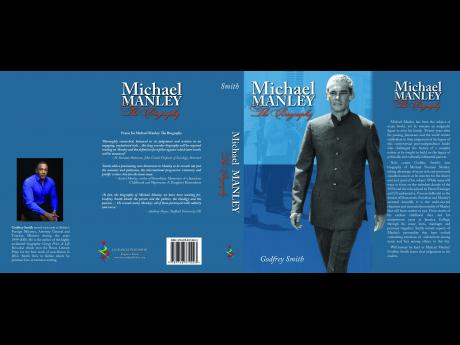Michael Manley: The Biography Part I
We human beings are complex creatures. We have our peculiar ways. We like to think we are logical, but we often behave irrationally. We often vacillate, just when we should be decisive. We make (and do not always acknowledge) mistakes, and we have unexpected successes.
Reading what might be considered the definitive biography of former prime minister of Jamaica Michael Manley confirmed what I had always suspected: that he was just such a human being. Manley has often been portrayed either as a noble but misunderstood leader of messianic proportions or as a misguided, slightly sinister politician, who brought Jamaica to its knees during the 1970s. This book clearly demonstrates, through intriguing, often intimate revelations, that Manley was neither of these one-dimensional extremes. Yet he was presented to Jamaica (and the world) as one or the other during his political career and even to this day. This is how we, the public, treat with our leaders, of course: either on a pedestal, or with feet of clay.
This is why such a biography is invaluable. It explores the man behind the superficial "good guy, bad guy" facades. The author calls his subject "Michael" throughout the book, thus immediately "humanising" him.
A MAN OF HIS TIME
Mr Smith collaborated closely with Manley's daughter, Rachel, on the writing of the book. Among several other sources - family members and others close to him - he makes substantial use of what he calls "priceless"
private correspondence between Manley and his loyal friend, the late Professor Rex Nettleford. The latter offers the reader an unusual and revealing perspective. Professor Nettleford's reflections are sympathetic and supportive, seeking to explain setbacks, uphold strengths, and applaud the successes of his friend.
By contrast, the author punctuates his narrative with the hard-headed comments of political scientist Carl Stone, the perceptive founder of the Stone Polls. We are indebted to Professor Stone for his continuous taking of the political temperature, creating a diligent chronicle of the times.
Manley was a man of his time. This book takes us through his childhood, growing up in the shadow of his esteemed, high-achieving father (and a National Hero, no less) Norman W. Manley, and his artistic, indulgent mother, Edna Manley. As a child of Jamaica's "first family," the young Michael grew up in the privileged world of Drumblair. Already a member of the political elite, he asserted himself early as "competitive", rebellious and strong-willed. He would have been expelled from Jamaica College if his influential father had not intervened. A bit of a "spoiled brat," one might say.
So, here's another contradiction. This "man of the people" never lost his love of classical music and art. It was what he was brought up with. His carelessness with money was also a product of privilege.
Nevertheless, the author points to Manley's hard work during the years before he entered politics in the trade union movement. He was proving himself. He was trying to escape those "family connections" but was also genuinely concerned with the plight of the Jamaican worker. We learn that he was afraid of public speaking as a young man, preferring to write - quite ironic since he was later famed for his orator's skills. He made his first speech at age 27.
See part II next week.



